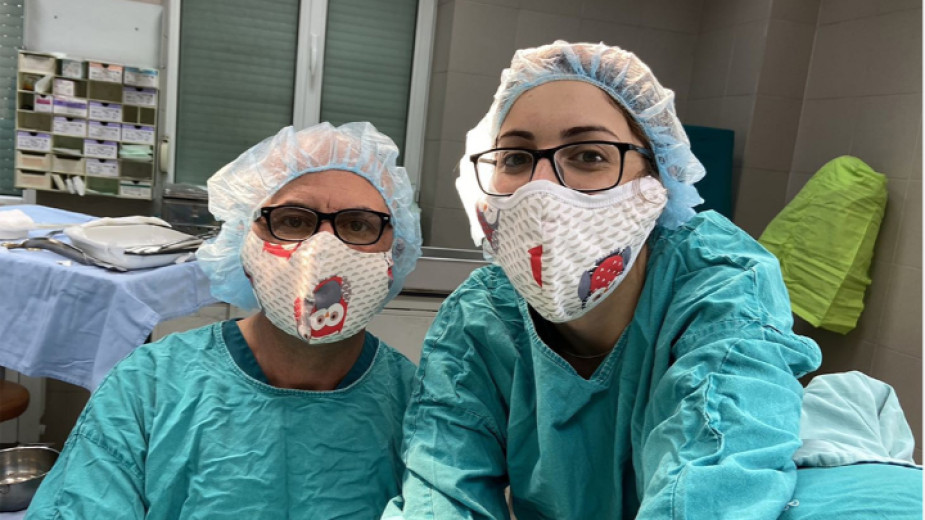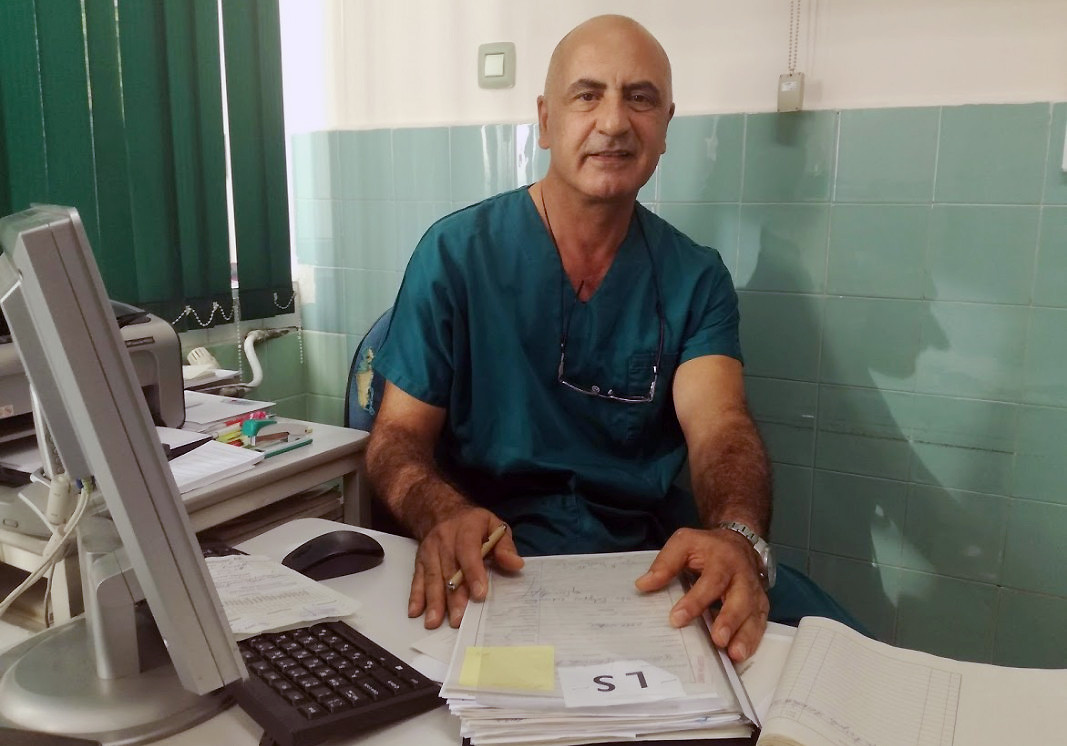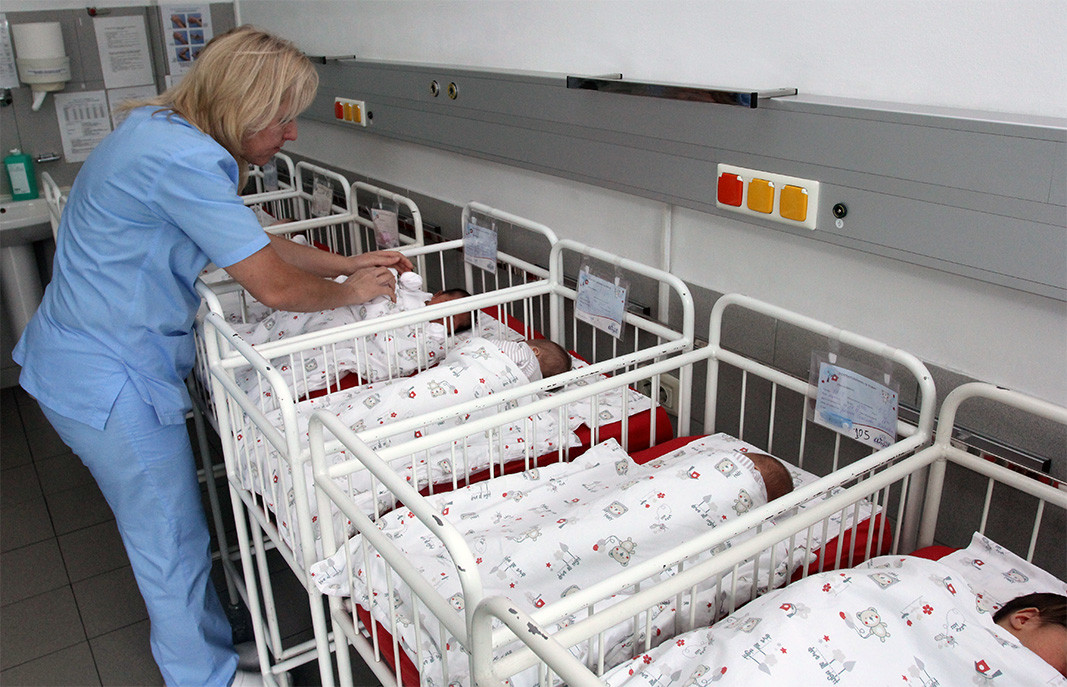
On January 21, immediately after the Day of Saint John the Baptist according to the old-style calendar, Bulgarians celebrate Babinden (Midwives' Day), in honor of the elderly women who helped women during delivery in the past. Nowadays, the holiday has lost much of its ritual nature but has remained a day dedicated to all professionals who help life appear in the world. In 1951, January 21 was officially declared the Day of Maternity Care and Midwives and Gynecologists.
One can say this is a day of the new life and beginning and on this day we meet with Dr. Michel Shoayb, who has been helping women bring new life into the world at the Sheinovo Hospital in Sofia for 30 years.

He was born in Lebanon and arrived in Bulgaria back in 1980. He graduated in medicine at the Medical Academy and then specialized in obstetrics and gynecology at Maichin Dom and the Sheinovo Hospital, where he has been working since 1990.
"I turned to this specialty because it deals not only with people who are ill, but with the birth of new life. We perform In-vitro procedures, with deal with sterility of married couples, we are happy when we manage to help in the birth of a new life. There is nothing greater than that! The moment when you take the newborn baby in your arms is indescribable, it is not a profession, but a vocation.”
Because of the pandemic, access of fathers to the maternity wards is limited and they no longer have access to the delivery room. But under normal conditions before the pandemic, more and more fathers were willing to be present at birth.
Dr. Michel Shoayb recalls with laughter of a "brave" father who said he would not be frightened by his wife's pains and decided to stay. "When the baby's head emerged and the most serious moment came, I felt a shadow falling behind me as the father fainted, so I had to resuscitate him," the gynecologist says.

The Sheinovo Specialized Hospital of Obstetrics and Gynecology has 75-year-old traditions and is considered a standard for professionalism and use of modern medical technologies. For Dr. Michel Shoayb 2020 would remain in his memories as "the year of the baby boom."
"In 2020, despite the pandemic and restrictions, 300 more babies were born in Sheinovo in comparison to 2019. We finished 2020 with a record and we are very happy."
The trend is really joyful, because in the period 2015 - 2019 the number of newborns in the country was declining by 1000 to 2000 per year.
However, the doctor's happiness is not unconditional. “There is an urgent need for health-care reforms in Bulgaria. After graduation, young medics prefer to leave the country. We cannot insist that these young people should stay here if we do not make serious, real and radical reforms in the health care system, with adequate remuneration and conditions."

According to the latest data of the Ministry of Health, currently the number of midwives is two times less than needed and their average age is 55 years. According to the Professional Organization of Health Care Professionals, in order to provide high-quality care for pregnant women, this country needs 4,000 midwives more. Therefore, this year Bulgarian medical schools have announced they would admit more students in the Midwifery Specialty.
English: Alexander Markov
Photos: Sevda DukkanciThe tallest Ferris wheel in Bulgaria will rise above Pleven , announced regional governor Nikolay Abrashev. It will be built in a multifunctional complex near the Kaylaka Park. "The project envisages the construction of a Ferris wheel with a..
The town of Elena, Veliko Tarnovo region, will welcome thousands of guests for the Feast of the Elena pork leg meat delicacy . Balkan masters will demonstrate their culinary art on Saturday and Sunday, BNR correspondent Zdravka Maslyankova reported...
The international wine festival "Bolgrad Wine Fest" is opening today in the unofficial capital of ethnic Bulgarians in Ukraine - Bolgrad. The two-day event will be held at the Center for Culture and Recreation. For the first time, within the..
Nuredin Nuredinaj comes from the historical-geographical region of Gòra in Northeastern Albania, where 90% of the inhabitants identify themselves as..

+359 2 9336 661
